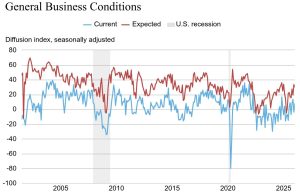It’s been a difficult [couple months] for U.S. government employees, and things seem likely to get worse for them. President Donald Trump and his adviser Elon Musk are hell-bent on dramatically shrinking government and slashing the federal workforce. They have directed department heads to fire tens of thousands of workers. The cuts are being directed […]
Already an Subcriber? Log in
Get Instant Access to This Article
Become a Central New York Business Journal subscriber and get immediate access to all of our subscriber-only content and much more.
- Critical Central New York business news and analysis updated daily.
- Immediate access to all subscriber-only content on our website.
- Get a year's worth of the Print Edition of The Central New York Business Journal.
- Special Feature Publications such as the Book of Lists and Revitalize Greater Binghamton, Mohawk Valley, and Syracuse Magazines
Click here to purchase a paywall bypass link for this article.
It’s been a difficult [couple months] for U.S. government employees, and things seem likely to get worse for them. President Donald Trump and his adviser Elon Musk are hell-bent on dramatically shrinking government and slashing the federal workforce. They have directed department heads to fire tens of thousands of workers.
The cuts are being directed by the so-called Department of Government Efficiency (DOGE), headed by Musk. But firing employees without regard to their effectiveness and eliminating jobs despite their importance is the opposite of efficiency. It’s thoughtless and ultimately wasteful.
Federal employees are doing work that isn’t just important, but also, in many cases, essential. They’re making sure our Social Security payments get made and our tax returns get processed. The employees are keeping our air safe to breathe and our water safe to drink. They ensure that airplanes don’t crash and that highways and bridges are built correctly. Yes, the government, with its confusing array of departments, acronyms and rules, can seem distant and bureaucratic. But I have worked closely with federal employees during my decades in public life, and I’ve found most to be dedicated and highly professional. Laws intended to protect them from arbitrary and politically motivated firing have served the nation well.
For some of us, our mental picture of a federal employee is of a faceless Washington bureaucrat shuffling paper. Or we may think of people we know: a neighbor who works in a local Veterans Affairs (VA) office or a nephew with a job in a government research lab somewhere in Virginia.
It turns out that 80 percent of the more than 2 million federal employees work outside of the Washington, D.C. metro area, and many work outside the United States. The State Department maintains 271 embassies and consulates, staffed by tens of thousands of employees, in 173 countries. In some cases, those employees are deployed to unstable areas where their safety can be at risk. They are crucial to America’s role in the world.
Almost anyone who has run into difficulties while traveling in another country has had reason to be grateful for [our State Department employees]. Problems with money, missed travel connections, or lost identification can seem overwhelming when you’re in a country where you don’t speak the language or know the local byways. I experienced this myself years ago as a student traveling in Europe. In 2023, State Department employees and teams assisted 70,000 Americans in crises.
Civilian-government employees are also essential on U.S. military bases in other countries. More than 70 percent of the federal workforce is employed in defense and security-related agencies, including the Departments of Defense and Veterans Affairs, according to the Partnership for Public Service, [a nonprofit, nonpartisan organization based in Washington, D.C. that says its mission is to inspire a new generation of civil servants and to transform the way government works]. Government workers are much more likely than the general population to be veterans.
Trump and Musk have been especially aggressive in moving to dismantle the U.S. Agency for International Development (USAID), the primary government entity for helping countries recover from disaster, escape poverty, and undertake democratic reforms. The administration placed most of its employees on leave, creating a chaotic situation in which food aid was reportedly stranded in warehouses and life-saving health and medical programs were disrupted.
It can be argued that Trump was elected to make changes, and his anti-government rhetoric resonated with much of the electorate. But indiscriminate dismantling of the government and demonizing of its workforce is cruel, short-sighted, and wrong. Federal employees are responsible for essential work. We’re all better off if they are treated with respect.
Lee Hamilton, 93, is a senior advisor for the Indiana University (IU) Center on Representative Government, distinguished scholar at the IU Hamilton Lugar School of Global and International Studies, and professor of practice at the IU O’Neill School of Public and Environmental Affairs. Hamilton, a Democrat, was a member of the U.S. House of Representatives for 34 years (1965-1999), representing a district in south-central Indiana.
Lee Hamilton, 93, is a senior advisor for the Indiana University (IU) Center on Representative Government, distinguished scholar at the IU Hamilton Lugar School of Global and International Studies, and professor of practice at the IU O’Neill School of Public and Environmental Affairs. Hamilton, a Democrat, was a member of the U.S. House of Representatives for 34 years (1965-1999), representing a district in south-central Indiana.



